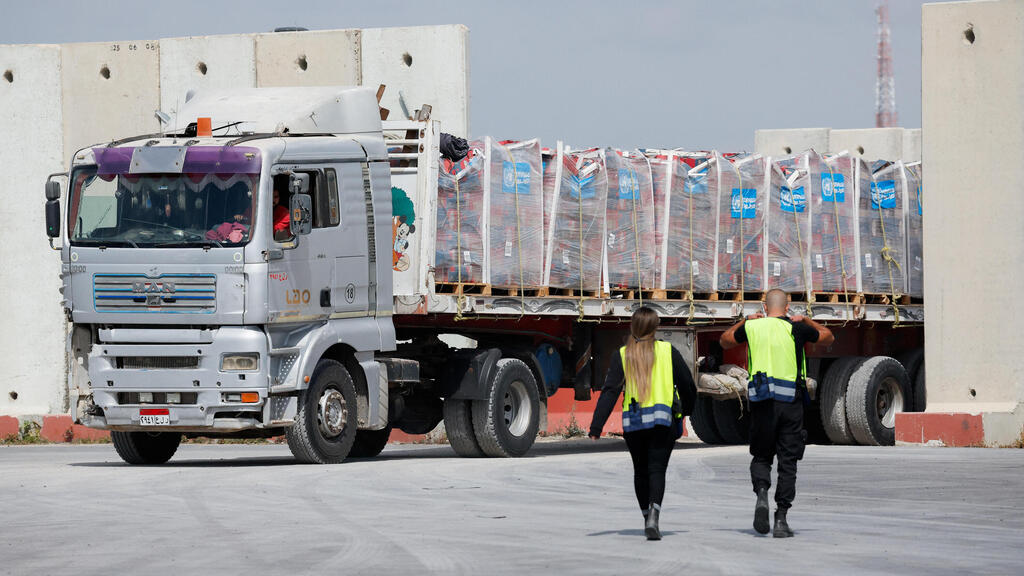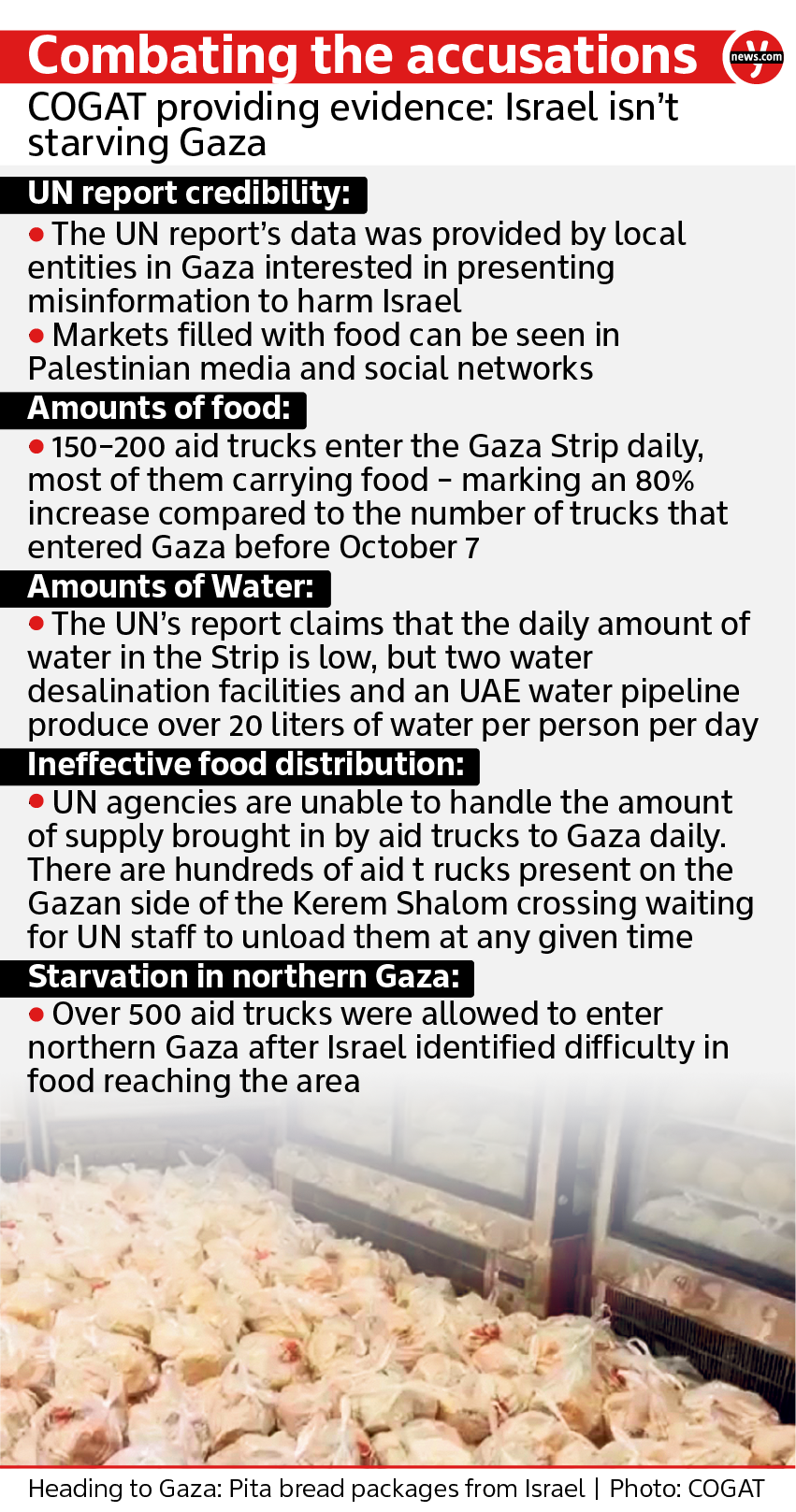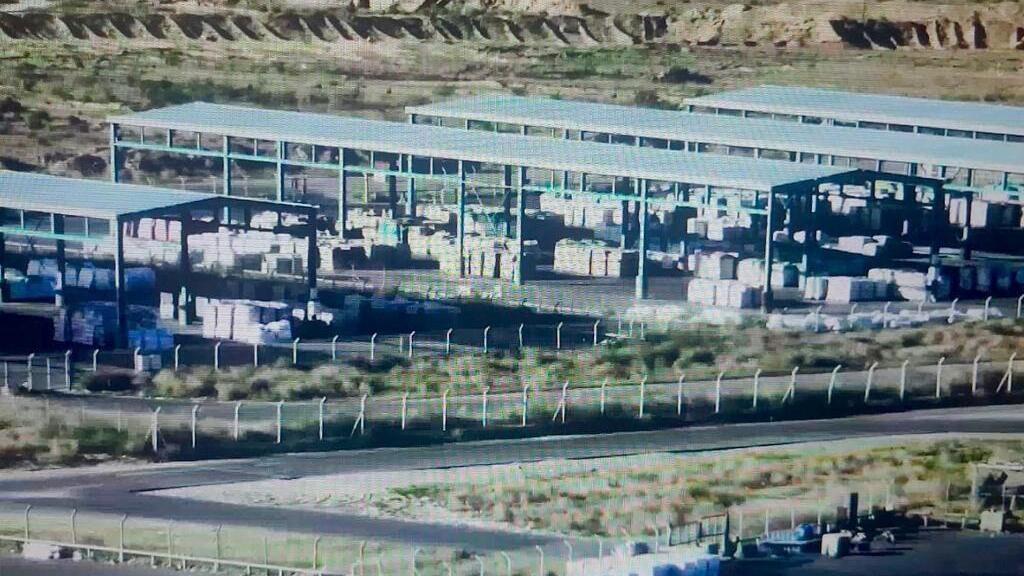Getting your Trinity Audio player ready...
Israel’s Coordinator of Government Activities in the Territories (COGAT) Director Major General Ghassan Alian published a report on Sunday which disproves recent claims against Israel on the state of food security in Gaza, and points to factual and methodological errors made by a United Nations report on the matter.
3 View gallery


Aid trucks at the Kerem Shalom border crossing
(Photo: REUTERS/Carlos Garcia Rawlins)
According to the UN report, which used the IPC index designed to determine the food security situation in countries, in the most likely scenario and assuming the war continues, 50% of Gaza’s population (1.1 million residents) could face famine (phase 5 on the index). Some 38% of the population is expected to face an emergency (phase 4 on the index), and 12% of the population is expected to face a crisis (phase 3 on the index).
The COGAT report disproved the accusations of rampant starvation in Gaza and noted that 150-200 aid trucks enter the Strip daily, mostly food trucks, representing an 80% increase compared to the average daily food trucks entering Gaza before October 7. Additionally, Israel has allowed the opening and operation of additional channels for the transfer of humanitarian aid to the Gaza Strip, including maritime routes, airdrops and aid packages, while cooperating with several countries.
According to the COGAT report, UN agencies and aid organizations operating in Gaza are unable to deal with the number of supplies brought in by trucks daily, and hundreds of trucks are waiting on the Gazan side of the Kerem Shalom crossing for UN distribution by aid workers.
The report also shows clear data regarding issues such as food and water quantities and accusations of starvation in northern Gaza, which contradicts the UN report. According to COGAT, the data taken for the UN report was provided by local bodies – such as the Palestinian Health Ministry controlled by Hamas in Gaza – which have a strategic interest in presenting misleading information.
Additionally, images and videos posted on social media and reports in Palestinian media in areas including Rafah, refugee camps, central Gaza and the northern Strip show markets full of a variety of foods.
"We maintain continuous contact with the international community and conduct a thorough examination of every claim that arises," Alian said. "However, it’s clear the IPC report has many factual and methodological inaccuracies that undermine its credibility and those of the sources of information it relies on. Furthermore, the report systematically ignores Israel's humanitarian efforts during wartime; therefore, we won’t allow any entity to defame the state of Israel in this manner."
However, even Israel's closest friend, the United States, says that there’s a "real possibility" that Gazans in the north of the coastal strip could be suffering from hunger.





